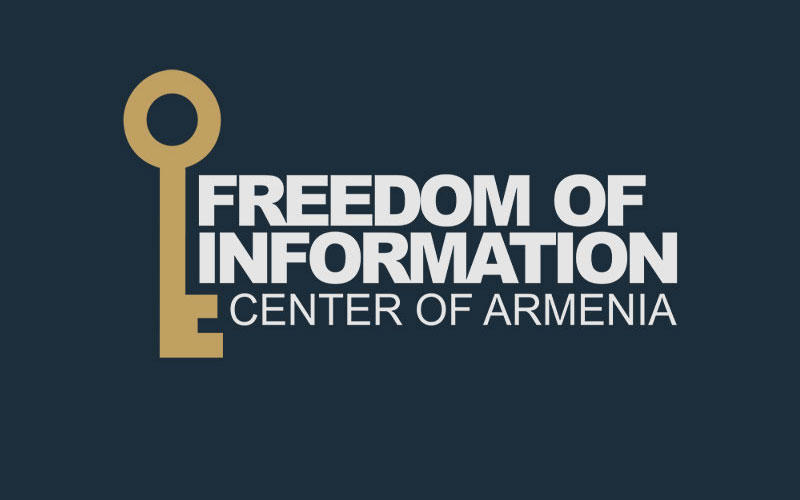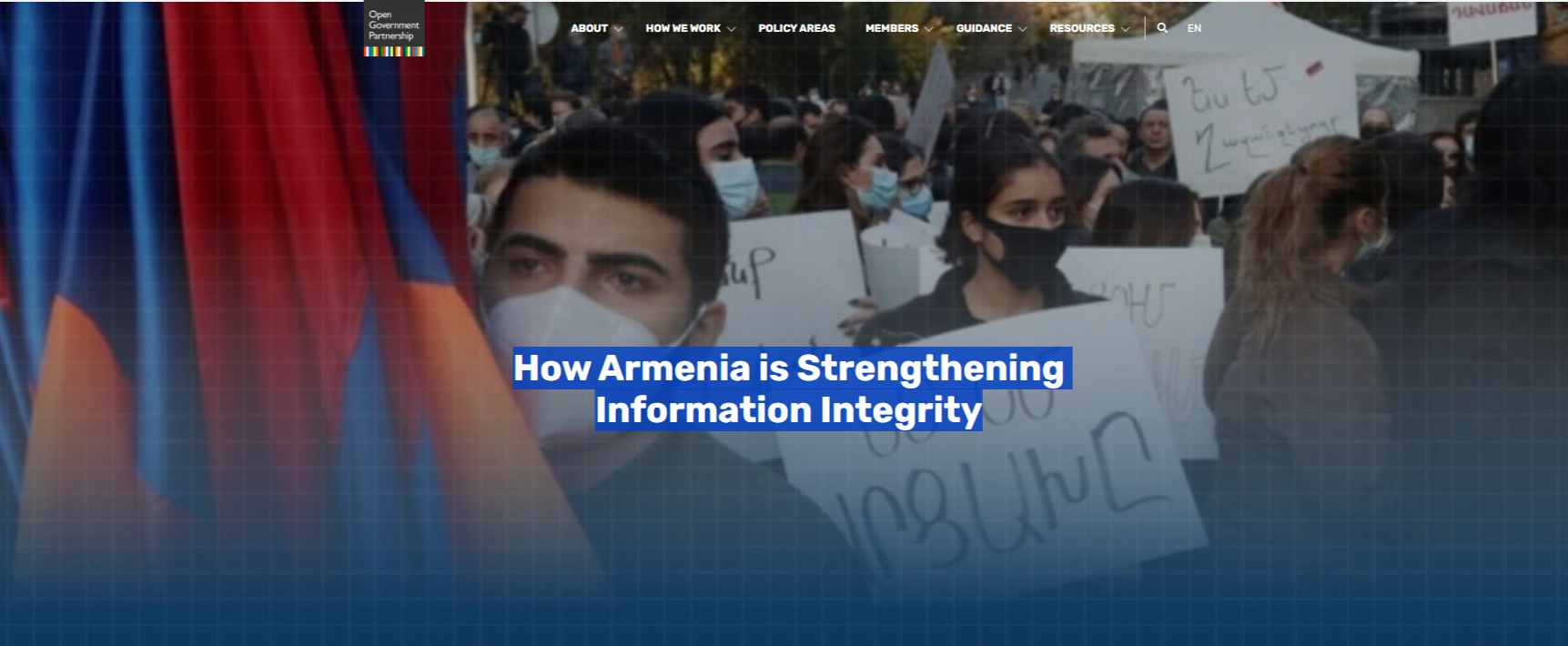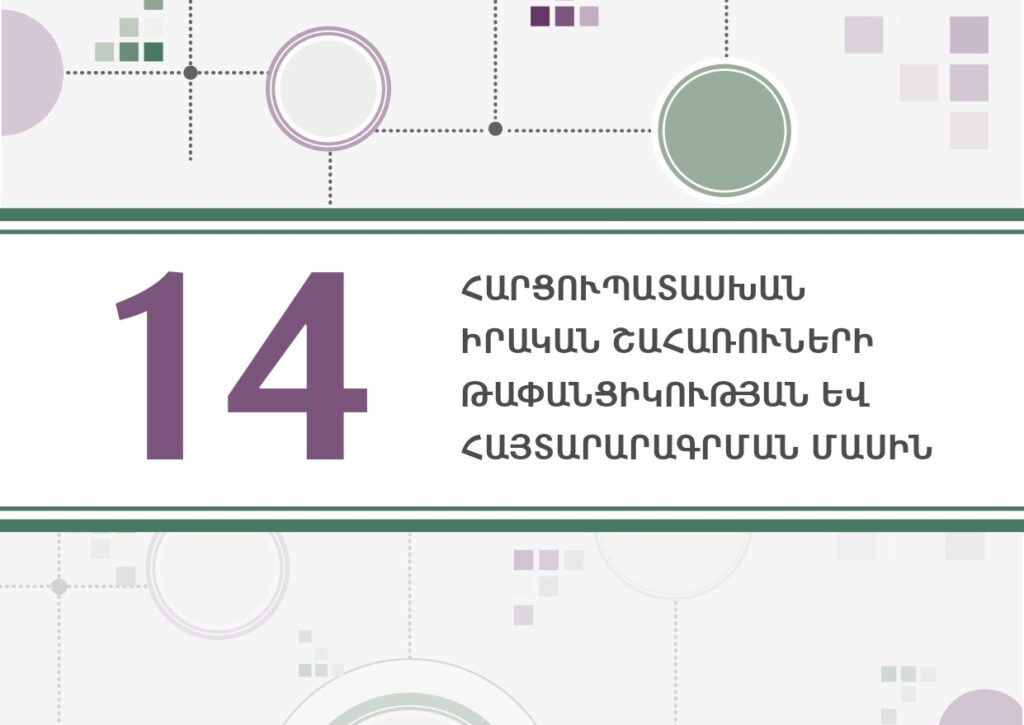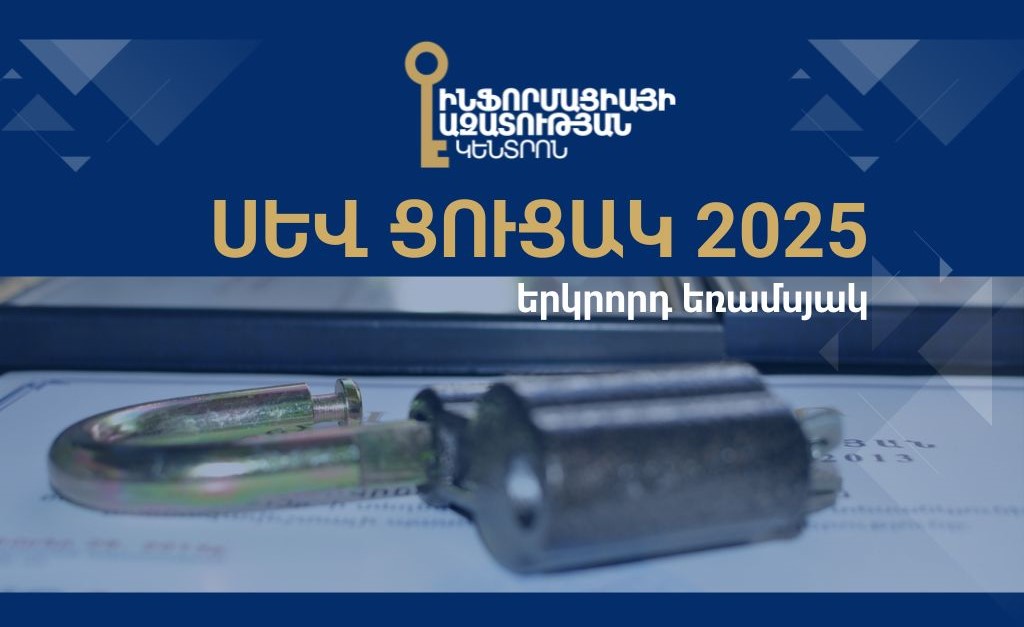Naira Bulghadaryan The RA Civil Court of Appeal satisfied the requirement of the public organization (NGO) to get from the police the copies of the documents related to the official investigation. Almost a year long dispute between Vanadzor Office of the Helsinki Citizens’ Assembly /hereinafter referred to as the “HCA” Vanadzor Office/ and the RA Police over the right to get information has ultimately resolved at the Court of Appeal. The Court has resolved to satisfy the claim of the organization obliging the Police to fulfill the requirements of the RA Law “On Freedom of Information”. Since August 2007 the organization has applied to the RA Police requesting to provide the copies of the documents of the official investigation conducted in regard to some citizens tortured by a group of policemen from Vanadzor. The answer to the application-inquiry to get information surprised the president of the organization Arthur Sakunts. “In accordance with the Regulations of the Internal Security Department of the RA Police the materials of the official investigation are documents intended for internal use and are not provided to other bodies,” wrote Head of Internal Security Department Police Colonel A. Grigoryan, in his return mail. According to the RA Law “On Freedom of Information”, Sakunts appealed this return mail at the superior bodies: Hayk Harutunyan (former) the RA Police Head. Failing to receive any response Sakunts had to go to court. The human rights activist was confident that the information he was interested in was open and transparent, consequently, the failure by the Police to provide it was violation of the law. With this substantiation at the court of first instance of “Kentron” and “Nork-Marash” Community of Yerevan presided by Judge Gayane Karahanyan, Sakunts, appealing the inactivity of the police, attempted to present the law and its limitations. According to his statements, the internal documents of the police are not considered secret, so they shall be subject to publication. According to the law the information that contains state, official and trade secret, as well as information that infringes the privacy of a person and his family and contains pre-investigation data not subject to publicity is not subject to publication. The substantiation of the refusal by the Police was quite different at the court. It dealt not with that it was of internal use as it was mentioned before in their return mail, but referred to Article 10 of the RA Law “On Freedom of Information” according to which provision of information or its copy from state and local self-government bodies shall be realized according to the Regulation of the Government of the Republic of Armenia. Up to now the Government has not yet established any such Regulation. This substantiation was used by Judge Karakhanyan for dismissal of the claim. At the same time the Court considered grounded the provision of Article 68 of the RA Law “On Legal Acts” brought forward by the Police according to which “The person shall not be obligated to perform the requirements of the legal act not promulgated or not entered into force by the procedure defined by thee law. It should be noted that in the meantime the RA Civil Court of Appeal considered the judgment of the previous instance court as subject to change. Considering the absence of appropriate government regulations as a reason for non- provision of information groundless, in court the leader of the public organization referred to the RA Constitution and the European Convention, which guarantee the right to get information. “Non adoption of a resolution by the Government of the Republic of Armenia, in this particular case – inactivity cannot serve as a ground for limitation of the right, since the Constitution and appropriate international documents stipulate a direct responsibility for the state body and its staff in exercising, providing and implementing the given right of a person,” noted Sakunts at the Court of Appeal. According to the human rights protection activist the regulations to be developed by the Government are for the officials, but not for a citizen, and such regulations instead of establishing information provision authorities should be merely directed at developing a mechanism for implementation of such authorities. “Non-adoption is a problem for the given body and its staff, but not for a citizen.” The Civil Court of Appeal presided by Judge Noyem Hovsepyan considered that non-provision by the police the materials of the official investigation with substantiation that these documents were for internal use, neither ensued from the RA Law “On Freedom of Information”, not from the RA Law “On Legal Acts”. The Court concluded that the absence of the regulations for the provision of official investigation materials or their copies could not serve as a basis for refusal in information provision. The Court referred to the RA Law “On Legal Acts”, through which the Constitution becomes immediately operative, the other laws are being adopted based thereon, and legal acts are literally interpreted in the sense of the words and expressions contained therein. “Here the RA Police has violated the right to get information envisaged and guaranteed by the RA Constitution,” concluded the RA Court of Appeal. P.S. The RA Police has already provided the Vanadzor Office of the Helsinki Citizens’ Assembly with the copies of the required documents.











